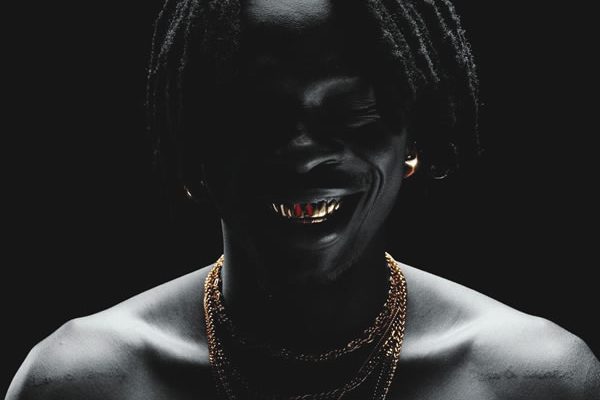Nigerian singer Fireboy has revealed how music legend Lagbaja didn’t allow him to see his face during their recording session for the track “Back & Forth” on his self-titled fourth album.
In a recent interview with Apple Music Africa Now monitored by R, Fireboy discussed his new album and shared intriguing details about his collaborations with some of Nigeria’s most celebrated artistes.
Fireboy, known for his award-winning music, has featured a stellar lineup on his latest album, including Nigerian music icon Lagbaja, Grammy-nominated Afrobeat star Seun Kuti, Grammy winner Jon Baptiste, and hitmaker Lojay.

Reflecting on his collaboration with Lagbaja, Fireboy recounted how the legendary artiste maintained his signature anonymity throughout their recording session.
“You would not believe this: [Lagbaja] was masked up in the studio. It was crazy—I did not get to see his face. I had a few interesting thoughts; I wanted to ask him if I could see his face!” Fireboy said with a chuckle.
Despite the mask, Fireboy emphasised that the essence of Lagbaja’s artistry transcends his physical appearance.
“But you know, all that matters is that we made the music. That’s what makes Lagbaja, Lagbaja. You know, ‘Lagbaja,’ where I’m from, in the Yoruba language, means ‘Mr. Nobody,’ an anonymous person; so it’s only right that I do not get to see his face. I’m glad he got to be on the record—a special person, a special artist, a special record,” he added.

On working with Seun Kuti, Fireboy credited Olamide, the A&R for the album and YBNL label boss, for suggesting the collaboration. Fireboy described Seun Kuti as an “amazing and funny person,” appreciating the chemistry they shared in the studio. “Big shout out to Olamide, one of the A&Rs on the album. When we worked on the song together in the studio, he advised me, ‘I hear Seun Kuti on this,’ and the moment he said that it just clicked,” Fireboy noted.
He continued, “I just imagined him in one very dark room, spotlight on him, with the sax just blowing away, and it just made perfect sense to me. He’s a very cool guy, Seun Kuti. Amazing person, very funny, down to earth, and really hilarious. He has a very colourful personality and it was fun making the record with him.”
The album also pays tribute to other influential figures in African music. Fireboy revealed that one of the tracks on the album is dedicated to Afropop star Wande Coal. “I recorded that in 2021, I think, in SPINALL’s studio in Lagos. I was like, ‘When the time is right, this record will come out’—it just made a lot of sense. I listened to the beat once and it just immediately took me back to 2015-2016, when I was listening to one of Wande Coal’s records,” Fireboy explained.
He elaborated on his inspiration for the song named after Wande Coal, saying, “It just sounded like something Wande Coal would love, something he would have loved to have spit on. I was like, ‘What would Wande of 2016 do? Let me just try that.’ It’s sort of like a tribute to him; [everyone] knows I respect him so much.”
Fireboy’s fourth album is described as a tribute to the legends who have shaped African music over the years and a reflection of his own growth as an artist. “This whole album is more like a tribute to all the legends that shaped African music over the years, and also a testament to myself, of course, and my growth over the years,” he said.
The album features a blend of nostalgic elements and contemporary sounds, showcasing Fireboy’s evolution as an artist while honoring those who paved the way for modern African music. His collaborations with Lagbaja and Seun Kuti, among others, highlight his respect for the genre’s history and his commitment to preserving its legacy.
With this album, Fireboy continues to solidify his place in the Nigerian music industry, celebrating the past while looking forward to the future. The response to the album underscores his successful integration of legendary influences with his unique musical style.
READ ALSO: ‘OPC should unite to end insecurity in South-West’







